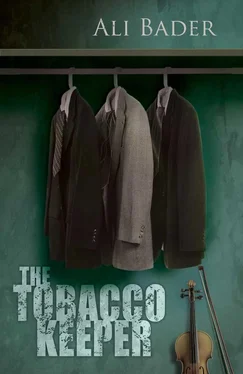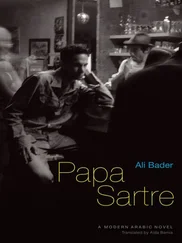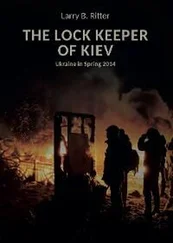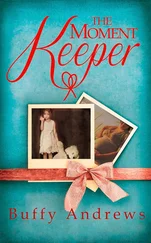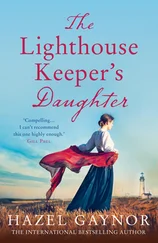Nancy was everybody’s best friend and she took her moral responsibilities towards her friends quite seriously. She was actually very different from anybody else I got to know at that time, for other correspondents seemed no more than brightly coloured bubbles. Most of them were proud, vain and worthless, while she was the total opposite. I became well known by the name that she had coined for me.
The fact is, no foreign reporter dared to enter Iraq during that period, so I was the one who wrote the news, reports and features for most of the major European newspapers. The names of their senior writers adorned their pages while they themselves sat in the bars and cafés of Amman, Damascus or Beirut, sipping cold beer and eating tasty mezzas . Their work was not unduly demanding. All they had to do was call and ask me to go to Baghdad, Basra, Al-Ramadi or Mosul to write their reports. In the meantime, they kept watch from a safe distance and, occasionally, directed reports to the destinations of their choosing. I moved from one hazardous area to another, time after time escaping death in order to write the reports and receive my cash.
In order to explain the dimensions of my new assignment on Kamal Medhat, I need first to describe my relationship with Jacqueline Mugharib, who played a great part in this.
Jacqueline Mugharib
Jacqueline Mugharib was a Syrian woman who lived on the upper floor of a small house in the Christian neighbourhood of Bab Touma in Damascus. The building was very old. On the ground floor at the front was a small bakery owned by a Lebanese Shiite man called Jaafar, who’d come to Damascus from south Lebanon some thirty years earlier. An elderly man, he employed five young Syrian bakers from Al-Saleheya City in addition to Iraqi immigrants who prepared the bread in the Najaf style. At the bakery, he also sold hot Lebanese-style pastries, whose aroma one could smell from far away. Next to the bakery was an olive-skinned Druze barber called Nabil. He had a very pretty red and green parrot with an extraordinarily long tail, which he said his uncle had brought him from the Caribbean.
The parrot perched on a long rope in the doorway, greeting passers-by in Spanish and Arabic. There was also a small, ancient-looking bar owned by a Christian from the Boutros family who lived in Wadi al-Nasara in Homs. This family had once been renowned for preparing and distilling arak , aniseed-flavoured liqueur. Posters of Hollywood actresses plastered the walls. This strange bar occupied a small part of the left side of the house. As for me, I lived just one street away from Jacqueline Mugharib’s house, in a big guesthouse in the middle of which was a small fountain. We called it ‘Katania House’, which derived from the name of the woman who was in charge. Katiana was thirty years old, pretty, olive-skinned and rather plump, and wore the veil in the Syrian style. Her clothes were modest and for ten years she’d managed the house on behalf of its Syrian Christian owner who lived in New York. She called herself Katiana, a Christian name, to make the woman overseas believe that she was also Christian. The owner would contact her manager only by phone and receive the rents remotely through her lawyer. She was therefore under the impression that the manager of her hotel in Damascus was a Christian like herself.
I was in love with Bab Touma. My time there reminded me of some lost moments of my life in Baghdad because of the similarities between this neighbourhood and Al-Karradah in Baghdad, particularly the constant presence of foreigners, the bars and the round-the-clock noise. There was also a rowdy, typically Middle Eastern chaos that resulted from the presence, side by side, of mismatched businesses: ladies’ hairdressers, cheap bars and modest restaurants. At a short distance from the house there were various shops and grocers: shops selling cakes and local sweets, Iranian and Arab bakers, shoemakers, tailors, small bookshops, a modern-looking church and a dental clinic. There was also the ever-changing flow of guests, particularly foreign students from the United States, France, Italy and even Asia. In this neighbourhood lived Christian artisans, junior clerks of all denominations, carpenters, tailors and poor Jews. There were also Syrian painters who’d turned their homes into elegant museums, which every evening attracted the cream of expatriate Iraqi and Syrian society. In the midst of this international anarchy there were Iraqi artists: painters, journalists, movie directors, novelists, photographers, dancers, musicians and actors, all living in old, semi-dilapidated houses in various parts of this cosmopolitan neighbourhood.
The house I lived in consisted of seven rooms, or eight, because the storeroom could be turned into a guestroom and one room was sometimes turned into two. These changes were purely logistical, undertaken during the tourist season with the arrival of Iraqi groups or for various other reasons. The permanent arrangement, however, was three rooms on the lower floor and three rooms on the upper, in addition to the courtyard facing the fountain at the centre of the house. There were always large couches for the benefit of anyone wishing to sleep out in the open and enjoy Damascus’ refreshing summer breeze. There was also a tiny kitchen with simple cooking utensils. I would often bump into the other guests coming out of the shared bathrooms, especially in the morning.
The first room was occupied by two Iraqi film directors, Nazar and Adel. Next to them lived two sisters from Latakia who worked for a dress-making company in Damascus. They were extremely pretty and elegant. The lodgers called the first one ‘the Romantic’ because she always sat distractedly at the window or on the large couch in the courtyard in front of the fountain, reading a book. In contrast, her sister was called ‘the Symbolist’, following Adel’s innovative appellation.
On the upper floor lived an eccentric Iraqi young man who was rumoured to have worked for Iraqi — that is, Saddam’s, — intelligence. His first name was Helmi but we didn’t know his second name, for he didn’t speak much to the other lodgers. He would often stand in front of the outside mirror near the fountain in the centre of the courtyard, combing his hair for hours on end.
The first of the other two rooms was occupied by Shirley Mendes, an American photographer and journalist, while the second was occupied by Karim, an Italian man of Syrian descent who worked for non-governmental organizations providing aid to Iraqi artists, particularly film-makers.
During this period I was a frequent visitor to the apartment of Jacqueline and her husband Hanna Mugharib. He was a Syrian physician who, though not at all rich, was very hospitable. He never refused his wife’s wishes, for he was deeply in love with her. According to Nancy’s gossip, however, he was also having an affair that his wife knew nothing about, with a young actress who’d once lived at Katania House. Still, he met all the demands of his Marxist intellectual wife without fail.
Like Nancy Awdeh, I became one of the regulars at Jacqueline Mugharib’s salons and a fixture at her apartment on Thursdays. In fact I became one of her favourites. So, in addition to the regular Thursday evening sessions with a large number of foreign and Syrian intellectuals, I also met her almost every Sunday evening at a bar located at the intersection of Bab Touma and Bab Sharqi. At other times I would smoke the hookah with her and her husband on the pavement of the popular Dominoes café, near the police station in the main square of Bab Touma. At the end of our evening out, we would often go for supper at the pizzeria close by.
Jacqueline was an enlightened intellectual with mastery of both English and French and a law degree from the Sorbonne. Her views were totally communist. While in Paris, until her return to Damascus, she’d continued to work closely with French communists. For reasons unknown to me, she had no close ties with Syrian communists, but did sympathize a great deal with Iraqi communists, perhaps because, unlike other Arab communists, they had created armed militias to overthrow the regime. Jacqueline firmly believed in the culture of the coup and was convinced that change would never happen without armed struggle. This was how she came to look after a huge number of Iraqi communists, especially artists and journalists.
Читать дальше
